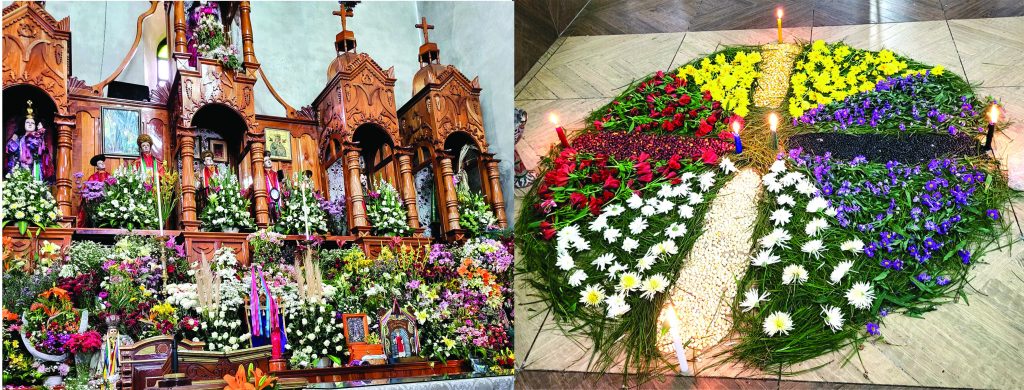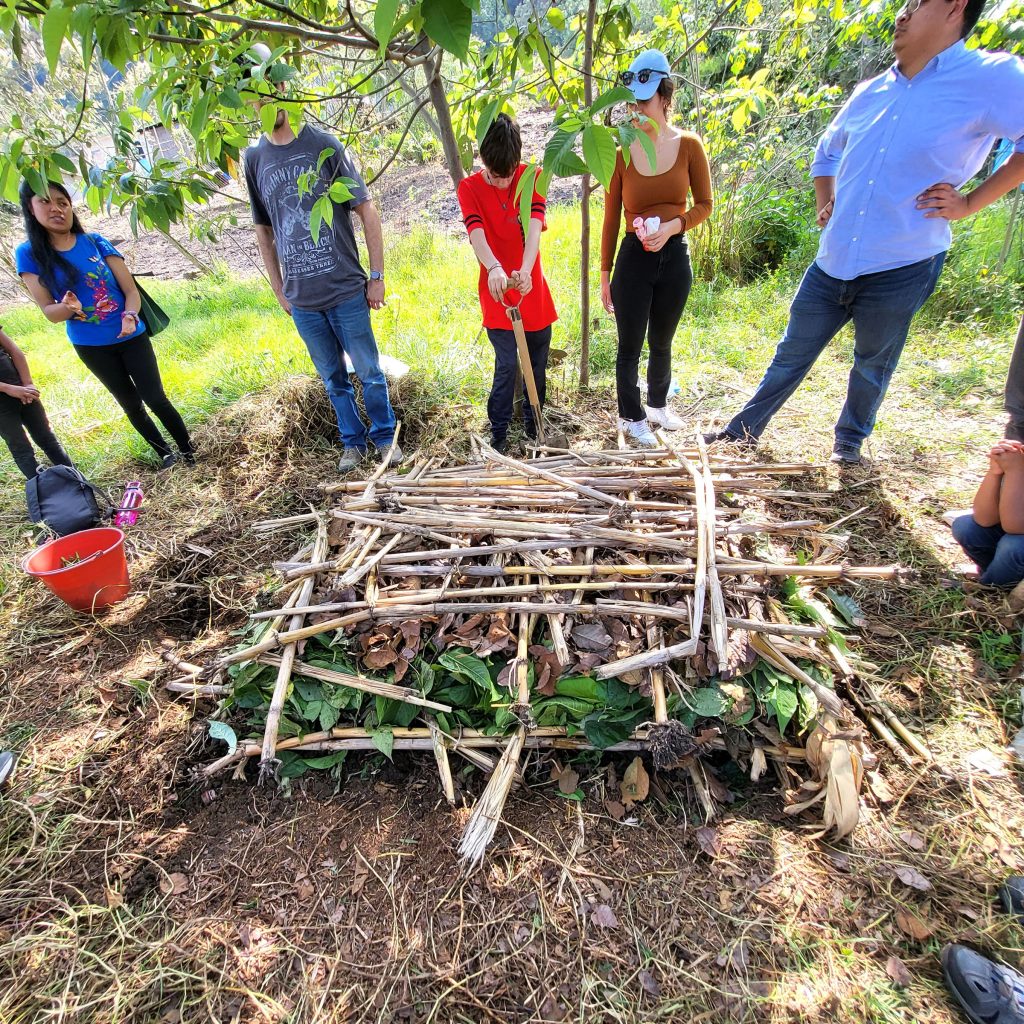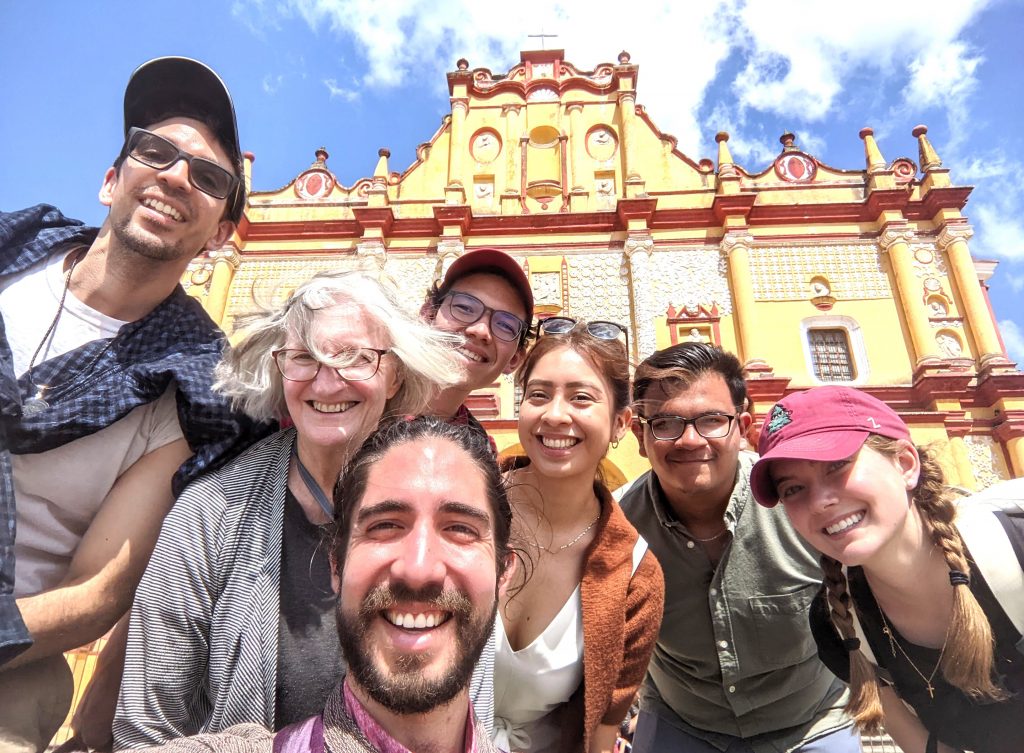Immersion: A Visit to the Indigenous Mayan Culture of Chiapas, Mexico



“[Human beings] lack an awareness of our common origin, of our mutual belonging, and of a future to be shared with everyone. This basic awareness would enable the development of new convictions, attitudes, and forms of life. A great cultural, spiritual, and educational challenge stands before us, and it will demand that we set out on the long path of renewal.” (Pope Francis, 2015)
Taking this message from Laudato Si’ to heart, Sisters Regena Ross and Gloria Marie Jones of the Dominican Sisters of Mission San Jose led seven students and members of the Catholic Community of Stanford University on an immersion experience to San Cristobal, Chiapas, Mexico. The home base for the experience was Comunidad de San Martin de Porres, where their Dominican Sisters have ministered for the past 50 years. The trip occurred March 25 – 31, 2023. Each day began and ended with reflection and prayer. It was important to prepare the group’s hearts and minds for the days’ experiences. Closing the day, they reflected on their encounters and shared their learnings, surprises, and heartfelt impressions.
Throughout the week the experience of Mayan spirituality stretched the Stanford team’s understanding of how Catholic faith can be expressed. This began on Sunday, March 26th when the group joined the Mayan community for Mass in Zinacantan, the flower capital of the state of Chiapas. The people filled the church with flowers, incense, and candles. They created a colorful Mayan altar that was integrated into their worship. They prayed in the native Mayan language, Tzotzil. The team was moved by the sincerity of the peoples’ prayer and by the beauty that filled the Church.
After Mass, one of the Eucharistic Ministers invited the Stanford team for lunch. Both the simplicity of his home and the family’s incredible generosity deeply touched them. The family lovingly gave what they had. Their trade was weaving. They demonstrated and described their craft to the team. Their work takes skill and much time, but earns low wages. The students were quite moved when the family gave two of them a hand-woven blouse. Their generosity was received with immense gratitude.
Day three started with an economic exercise. The Stanford team went to the market. They were divided into small groups and each was given a short shopping list needed for the next few days. This provided an opportunity to explore food costs and interact with sellers. Everything in the market was local as there were no imports to the region. That afternoon the Stanford group met with two social activists and discussed how the land and the people are symbiotic and identified issues that impact that relationship, such as:
- Environmental practices
- Historical land rights
- Privatization
- Genetically modified seeds
- Multinational corporations
The group discovered that the goal of Mayan life is about maintaining a state of equilibrium and harmony among family, others, God, and Mother Earth.
That evening the team visited Taniperla and connected with 21 local young adults and college students over pizza. This was an opportunity for fun and learning about their peers’ worlds. Everyone left enlightened from sharing the similarities and differences of their life experiences!
On day four, in Bayalermó, the Stanford team spent time contemplating God’s creation and experiencing a family’s interdependence with the land by creating a compost site for a family. They gathered large bags of leaves along with soil, sheep manure, and bamboo poles. They used a machete to cut down tall grass. Throughout the day the team developed a playful bond with the family’s children. It was a good day of being in nature and admiring its beauty. At the project’s end, the matriarch blessed the compost and “sprinkled” each team member with generous portions of water!
Later in the afternoon the team journeyed through the mountains to Talonhuitz to visit the Dominican Sisters’ health promoters’ ministry. The health promoters shared about their efforts to revive medical wisdom of the Mayan ancestors by creating natural ointments and powders to address modern health needs and forming local health centers run by trained volunteers. The Stanford team was inspired by their intelligent, systematic methods and passionate commitment!
For the final day, the Stanford group journeyed to Acteal, the site of a massacre in 1997 by a Right-wing paramilitary group called Máscara Rojaof. They killed 45 members of the indigenous pacifist community, Las Abejas (“The Bees”), while they were in prayer. Today, the local people continue the community at the site. They keep the memory of the fallen alive through painted murals, signs, and telling the story to visitors. They want to give witness to non-violence and recognize the wrong that happened in Acteal. A student of the Stanford team remarked about the experience: ” … it was hard to imagine how I could move on without craving violence or forgive the people whom I trusted… One thing I will carry with me forever…. I can always be more generous even in the face of the most difficult things…”
As was their habit, at the end of the last day, the Stanford team reflected. Some members shared the following. “In my experience of Catholicism, people use religion to make judgements and create division. They say that there is just one right way to express devotion and to be a true Catholic! Witnessing the faith here has taught me this isn’t true… there isn’t a right way to have a personal relationship with God… being open to ways people are in relationship with God is a beautiful and real gift.
This journey is a reminder that “As part of the universe, called into being by one Father, all of us are linked by unseen bonds and together form a kind of universal family, a sublime communion which fills us with a sacred, affectionate, and humble respect.” (Francis, 2015) The participants’ stories call us to be open to people from all walks of life and to celebrate and care for our common home.
Francis, 2015. Encyclical letter Laudato si’ of the Holy Father Francis. 1st ed. [Vatican City]: https://www.vatican.va/content/francesco/en/encyclicals/documents/papa-francesco_20150524_enciclica-laudato-si.html.
 USA
USA


